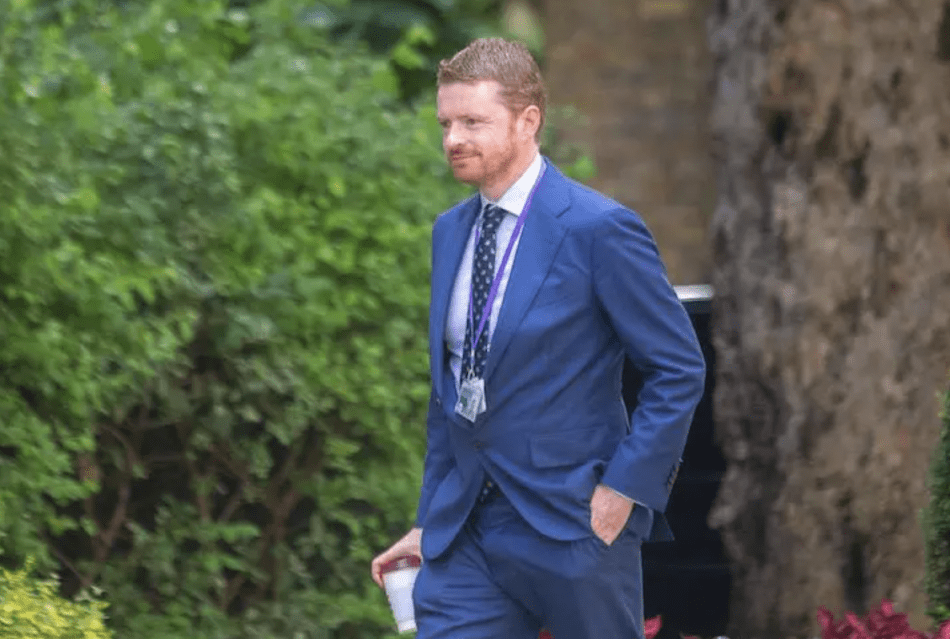After 48 hours, the final appointments have been made to complete the government’s reshuffle. A raft of rising stars from the 2024 intake like Josh McAlister, Josh Simons and Kate Dearden have all been handed junior ministerial posts. Kanishka Narayan, a tech enthusiast and Labour’s only Old Etonian, has gone to the Department for Science. Blair McDougall, who ran the Better Together campaign in 2014, is now in Business and Trade. These have been balanced with appointments for more long-serving colleagues too. Chris Elmore joins Yvette Cooper in the new-look Foreign Office team, while Anna McMorrin has replaced Nia Griffith in the Welsh Office.
It is instructive to look at which departments have had the most ministerial change. As my colleague Lucy Dunn observed yesterday, the Home Office team has been completely replaced. At Education, there are now three new faces: McAlister, Olivia Bailey and Georgia Gould. Bridget Phillipson retains her post as Secretary of State but the shake-up suggests that Starmer hopes to get more out of a department that has recently featured in numerous bad headlines. The Cabinet Office has been overhauled too. Simons will work with fellow new MPs Satvir Kaur and Chris Ward to build the new delivery command centre under Darren Jones there. Clearly, this is a major No. 10 priority.
What to make of the reshuffle overall? At the top, there has been something of a game of musical chairs. Only three ministers actually left the cabinet: Ian Murray, Lucy Powell and Angela Rayner. The survivors largely swapped jobs, prompting the Times‘ Chris Smyth to dub it the ‘Morecambe and Wise reshuffle’: all the right people, just not in the right order. Yet while Starmer declined to enact a Macmillan-esque ‘Night of the Long Knives’, he has clearly decided to double down on his existing political strategy. Within Labour, there is a cleavage of opinion. Some on the so-called ‘soft left’ want Starmer to talk less about migration, believing that a progressive, pro-worker agenda will shift attention onto more favourable Labour-coded issues like the NHS.
Labour’s fiscal straightjacket looks set to remain tightly-closed
Starmer appears to have ignored these voices. Rayner and Jonny Reynolds – perhaps the two closest figures in government to the trade unions – no longer hold departmental briefs. Peter Kyle, an arch moderniser on the right of the party, has now taken over at Business and Trade. It represents a potential shift in the centre of gravity of this government. One source suggests it will be ‘devastating for the employment rights’ agenda.’ With Rachel Reeves still at the Treasury and James Murray promoted to be Chief Secretary, Labour’s fiscal straightjacket looks set to remain tightly-closed. The trade unions will need to find new champions at the top of the party too.
The reshuffle would appear to confirm the power of Morgan McSweeney, Keir Starmer’s chief of staff. The two men drew up the reshuffle together from Starmer’s Downing Street study on Friday, enacting it over the next 48 hours with ruthless precision. McSweeney’s brand of politics are shared by key members of the new-look cabinet. Steve Reed, a close friend, gets Rayner’s brief at Housing and Local Government. Shabana Mahmood at the Home Office and Pat McFadden at Work and Pensions are both respected allies. In the lower ranks, McSweeney worked with Ward in Opposition; Simons succeeded him as Director of the Labour Together think tank. Imogen Walker, McSweeney’s wife, is among a raft of new appointments to the Whips’ Office too.
But with every winner, comes an inevitable loser. Discarded Labour veterans are piling up on the backbenches. It has been a bad week to be a Greater Manchester MP – Powell and Rayner are out from the cabinet while Jeff Smith and Mike Cabinet are leaving the Whips’ Office too. One estimate suggests that at least eight North West MPs are victims of this week’s reshuffle, potentially storing up regional trouble in the future. Others leaving government are Griffith, Kerry McCarthy, Gareth Thomas, Fleur Anderson and Justin Madders. All five were reasonably competent and bore the scars of Labour’s long march back from the electoral low point of 2019.
One factor in Boris Johnson’s fall was the number of older MPs of the 2010 and 2015 intake who feared that their time had passed. It was striking that at least ten of the welfare rebels this summer were former shadow ministers passed over for office in July 2024. The danger for Starmer is that the discontent of the dispossessed festers into open rebellion if the new arrivals cannot start delivering quickly.







Comments